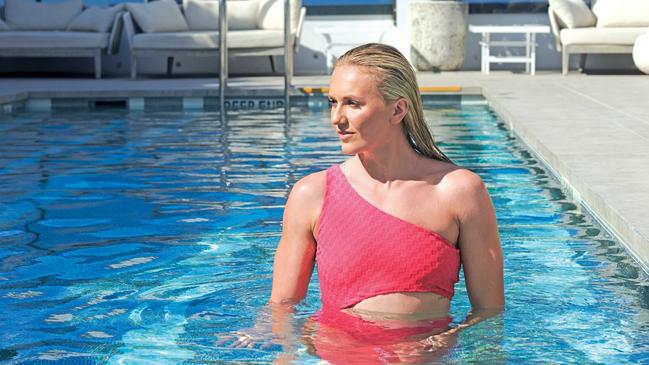
As Ariarne Titmus announces her sudden retirement from swimming, we revisit a deeply personal interview in which the Olympic legend opens up about a cancer scare that she says put everything into perspective.
Poolside, La Defense Arena, Paris Olympics, 2024, and Ariarne Titmus has just slayed a couple of dragons.
In the 400m freestyle which commentators, depending on their level of enthusiasm, have called the Race of the Century or the Race of the Decade, Titmus has beaten her greatest rivals, America’s Katie Ledecky and Canada’s Summer McIntosh.
She’s also made history by being the first Australian woman since Dawn Fraser to successfully defend back-to-back Olympic titles.
But when a beaming Titmus steps forward for a post-race interview, she says, “I hope nobody looks at me any differently. I’m just the same old goofy Tassie girl out here living out her dream. I hope it goes to show, anyone can do what they want to do if they work hard and believe in themselves. Here I am, from little old Launie, a town of 90,000, and I’m out here living the dream, so I hope that inspired kids back home.”
Suffice to say that the 90,000 good folk of Launceston probably lost their collective minds when Titmus brought home the gold – after all, there’s a two-storey mural of Titmus on the wall of the city’s Cock’n’Bull pub on Wellington St.
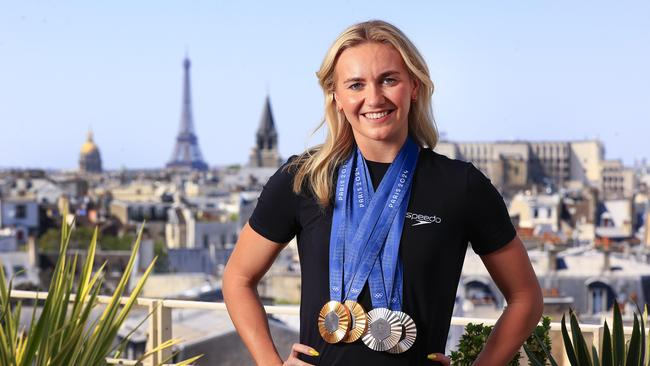
“You’ve already made us proud, Ariarne”, the mural proclaims, and she will do so again eight days later, when Titmus gracefully loses to Ledecky in the 800m freestyle.
That showdown is another marquee event at the Paris Games, and when Ledecky wins, making her own history by winning the event at four consecutive Olympics, Titmus is the first to congratulate the American.
Swimming over to raise Ledecky’s arm in victory, cameras captured the moment, and also a smiling Titmus saying something in Ledecky’s ear. What did she say?
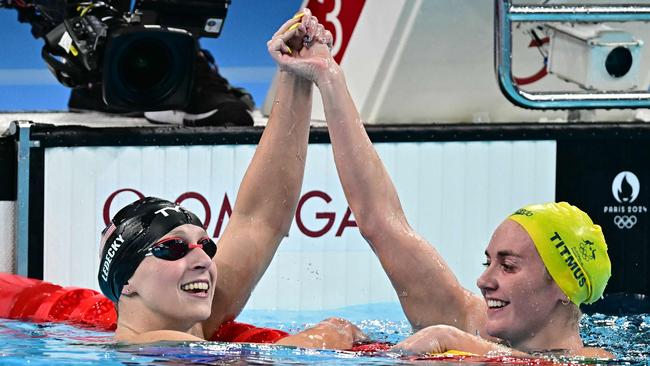
Titmus, back in Australia, relaxed and “just riding the wave” post-Olympics recalls, “I said ‘You are amazing, you have changed this sport.’ That’s why I held her arm up, four Olympics in a row, that’s remarkable.”
And while Titmus has other rivals – McIntosh, and closer to home, Mollie O’Callaghan from her own team, among them, it is the contest between Titmus and Ledecky that fascinates fans and pundits alike.
And it is Ledecky, Titmus says, that has always been her own, personal Everest.
“Our relationship has definitely evolved over the years,” she says.
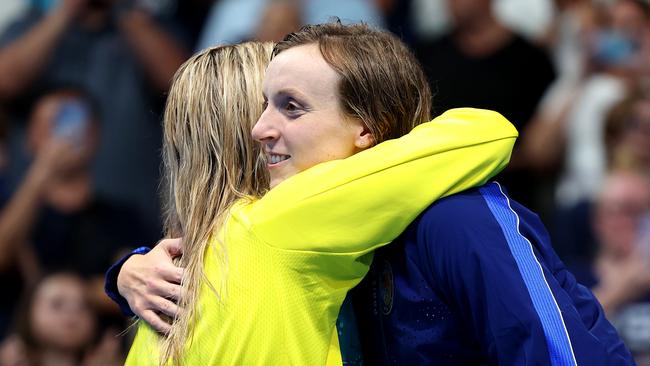
“When I first started racing her as a 17-year-old, I just looked at her with so much awe. I was never scared of her, but she was the top dog for sure, she was untouchable, and I didn’t really interact with her like I do now.
“But I think it goes to show the character of both of us in that when I started beating her she never showed any remorse or nastiness, and I think that our relationship has become one of this unbelievable level of mutual respect.
“I have thanked her because she has made me a better swimmer and I know I have made her a better swimmer, because you don’t get to this level without being pushed.
“Sometimes I pinch myself that I was the person to slay the giant; she was unbeatable, and when I look back on my career I think that’s what I will be most proud of – that I was never afraid to take it to the best. And also that we have this relationship and this rivalry that’s just fun and beautiful, because we know more than anyone else what it takes to be there.”
And what it takes to be a Titmus, or a Ledecky, goes far beyond the (gene) pool.
Asked what her training in the lead-up to the Olympics looked like, Titmus reels off a schedule that is exhausting just to listen to.
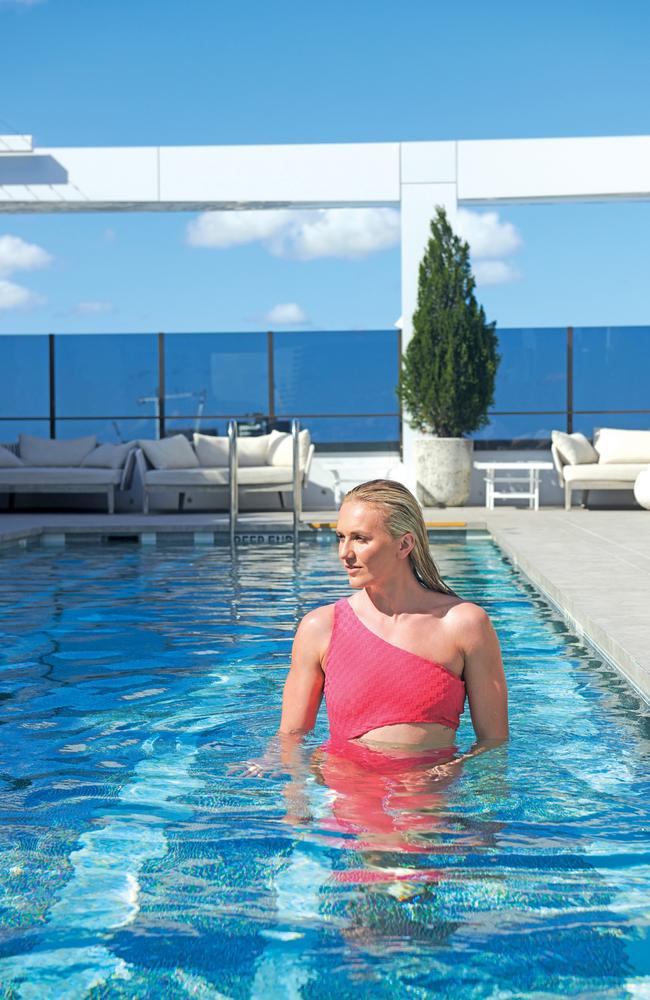
“So the actual physical training in a week is between nine and 10 swim sessions, which adds up to about 65km a week in the pool, and then I’d do three sessions in the gym doing weights, three on the bike doing spin, a couple of circuit sessions, core four times a week and then physio twice a week, massage twice a week, so four times a week doing soft tissue therapy helping my body to recover and trying to sleep as much as I can, then of course having a well balanced diet – it’s all encompassing really.”
But beyond peak physical conditioning, mental fitness is equally, if not more, important.
“You are performing at training every day, so it’s also the mental strain of being your absolute best every day,” Titmus muses.
“Everything else goes on the backburner, your mental life takes a massive hit, your social life takes a hit and you are physically and mentally exhausted for a long period of time. It’s a lot, but you do it for the moments like the Olympic Games, and it’s all worth it.
“That’s the thing, people can sit at home and become experts for two weeks, but no one will ever comprehend what it takes to become the best in the world,” she laughs.
“We all do it, we’re all guilty, even I sometimes say to myself when I’m watching an event, ‘I reckon I could do that’, and then I think ‘no you couldn’t’.’’
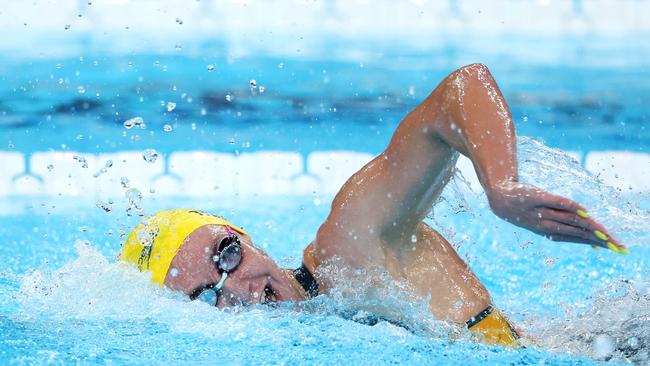
But Titmus is right – no one except a Dolphin, or a Hockeyroo, an Olyroo, an Opal or a Matilda, can truly know what it takes to pull on the green and gold, just as no one watching Titmus slice through the water at the Paris Olympics could have guessed what it really took for her to get there.
None of the real life or armchair commentators would have guessed, for example, that as late as February this year, Titmus was still feeling pain in her abdominal wall, what she calls a “tugging”, following her shock surgery last year to remove a tumour from one of her ovaries. Now that, she says, took some coming back from.
It was August, 2023, when Titmus, known and loved by swimming fans as “Arnie” or the decidedly more terrifying “The Terminator” went for a routine MRI for a niggling hip injury.
“I had it done, and my physio said that the extent of the hip injury was pretty minimal, and I was like ‘OK, great’, and then she said the doctor wanted to ring you about something else.” And, like everyone else who hears that their doctor wants to speak to them following some test results, Titmus wanted to immediately hear what those results were.
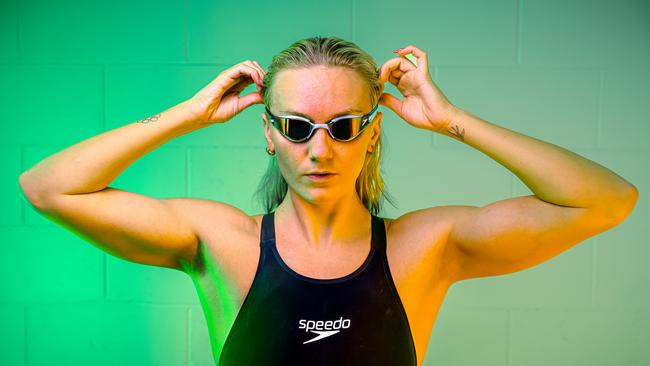
“I said to her, can’t you just tell me, and she said, no, he wants to tell you. And I am impatient, so I rang him.
“ I said, ‘Come on, tell me what it is,’ I was shocked when he said, ‘Okay, well, we’ve found a growth in your ovary and you need to go and have all the tests and you need to probably have it removed.’ I felt just shock, I was just getting back into training after the World Championships, it was the last thing I expected but I am very lucky I have a great gynaecologist. I have a great relationship with her already but it was still very overwhelming going for my first consult with her. She was excellent, just talking me through everything.
“I’d never had surgery in my life, I didn’t actually realise what the recovery would be like, I was thinking I’ll just get it removed and I’ll be back in the water in two days but even though it was laparoscopic, there’s still cutting through your abdominal wall and so you have to allow time to heal.”
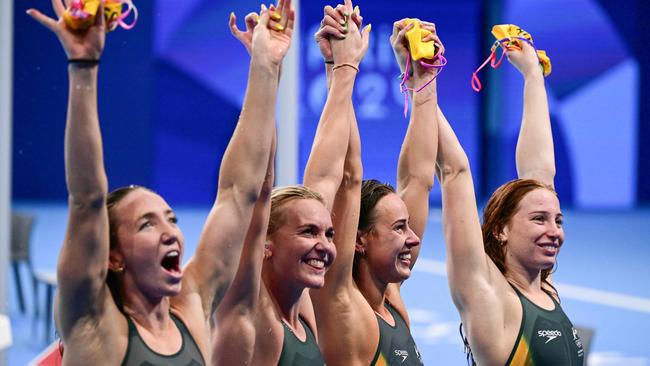
Post surgery – with the tumour fortunately proving benign, Titmus was out of the pool and the gym for almost a month, something the uber fit and focused athlete struggled with.
“Coming to terms with that was hard, but then having to do all these tests and being given pathology forms for cancer markers, internal ultrasounds, it was really confronting.” But for Titmus, there was another fear to face.
“I want to be a mother so badly some day, so for me the fear of potentially losing that ovary really hit me hard. I feel so much gratitude to the radiographer who had scanned everything so thoroughly because if he hadn’t I would probably still have it in me. So when it happened I just wanted to do everything properly, so I would be fine to have children one day. I was just like ‘get it out, get it out’.
Titmus pauses, reflecting on her stay in hospital and rehabilitation.
“When you are training for the Olympics you are very much in a bubble. You worry about things like shoulder injuries and keeping your body in check to train, and you forget about life post swimming, and for me the purpose of my body is to carry babies one day, I have a huge desire to be a mother, so that put things in perspective for me.”
Titmus says it took a long time, and with the help of her doctor and physio, as well as a strength and conditioning coach, to return to the pool – with a floatie.
“I was literally dog paddling, it took me ages to feel normal in the water again, I was still feeling tugging on my scar tissue until February in training.”
And when she did return to training proper, she says it was with a new understanding of what she was capable of.
“Honestly, I was so proud of myself for coming back from that.
“I’d never gone through something like that as a 23-year-old athlete. The battle for me was dealing with trying to get my body right to swim.
“But then also another part of me was, you know what? Life is bigger than swimming, and you’ve got to do this properly, and do your recovery properly, because if I don’t I might not get better. It taught me about who I am.”
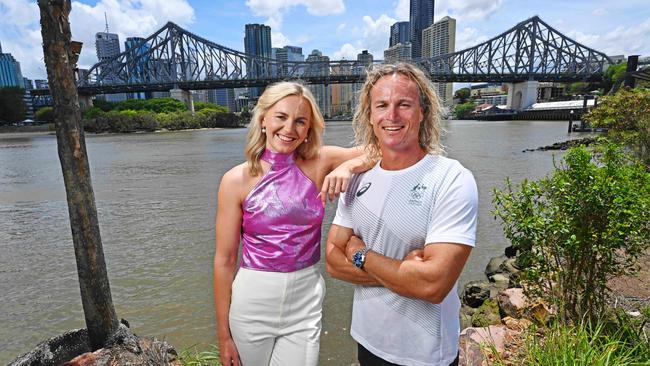
And helping Titmus get back in the water both figuratively and literally were her friends, her family, and her teammates at the St Peters Western Squad in Brisbane’s Indooroopilly where she trains.
And of course, her coach Dean Boxall, he of the exuberant post-swim celebratory moves at the Tokyo Games. Post-Paris, Boxall has cemented his place as one of swimming’s great coaches, his team boasting an embarrassment of champions with Titmus, O’Callaghan, Shayna Jack and Elijah Winnington just some of the members of the squad.
Collectively St Peters Western members took home four gold, five silver and two bronzes from the Paris Games, a feat Titmus says has much to do with the man who coaches them.
In the 200m freestyle, O’Callaghan took the gold over Titmus, and with both women swimming in Boxall’s squad, the epic showdown was the other marquee event of the game.
“Dean has this incredible ability to know how to communicate and coach each individual athlete,” Titmus says.
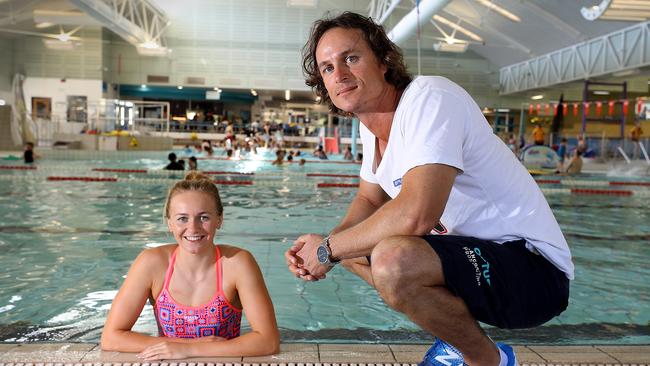
“I’m not shy in saying I think my relationship with Dean is the most solid out of anyone. Dean is one of my best friends, I love him to death, and he will be in my life forever. He just knows how to tap into my personality and how to coach me in his style.
“I have a pretty thick skin and I can take it, he will kind of use reverse psychology as such to get the best out of me, I don’t get ‘good jobs’ very often.” She laughs. “He more so tries to get under my skin and I try to prove him wrong.
“Our relationship as a coach and athlete has changed over the years. I was 15 when we first partnered, it was very much I do what he says, his way or the highway, and because I was so young and I knew no better and he pushed me incredibly hard and I would just take it. Now, I’m an older athlete. I’m nearly 24. It’s more collaborative. I have ideas and I’ll take them to him, and he will listen.”
And when times get tough – and when you are competing for a place on the world stage, times often get tough, Titmus says Boxall knows how to pull her through them.
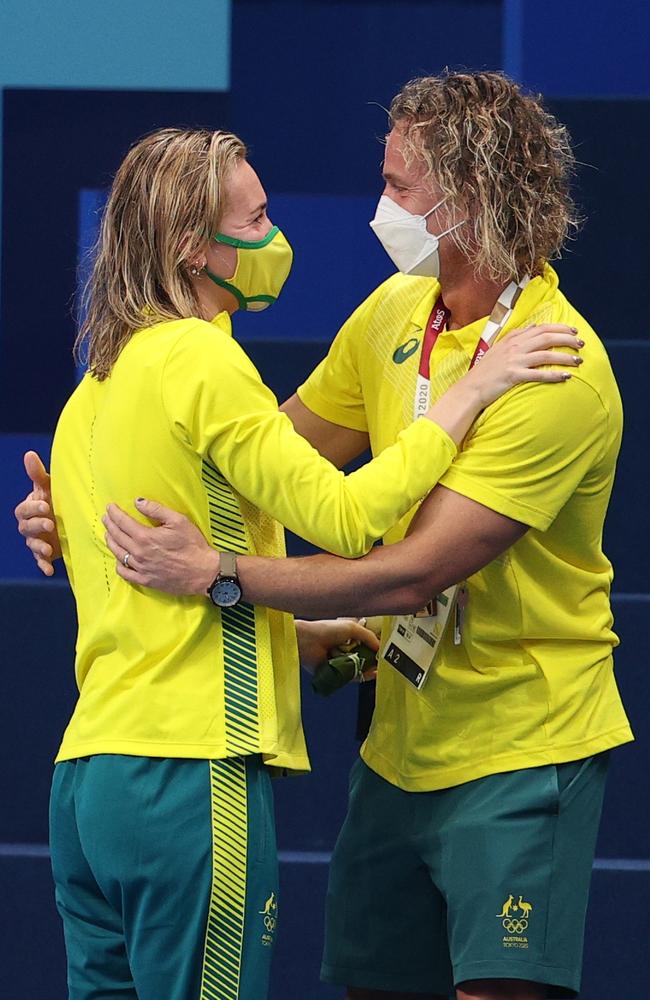
“Dean is very good at putting things into perspective. He’ll say, ‘Remember why you do it. You really have to remember why you swim. He reminds me of the little girl in Tassie who worked hard and trained hard. I’m still the same person. Dean is an incredibly smart person, the exterior and the perception that people have of him is often very different to who he really is.
“He is a very emotional person and I think he will go down in history as one of the greatest swimming coaches of all time.”
He is also someone, Titmus says, who has taught her not just how to win, but how to lose, what to do if that dream you are chasing turns to silver, or bronze, or dust.
“You cannot let your self worth be dependent on achieving something. You have to be proud of yourself as a human first and not let your joy be determined by winning or losing, you learn the most when you lose.
“When I look back at the greatest lessons I’ve learned, the greatest motivation has come from losing, not winning. For anyone out there who feels lost when they lose, or disheartened, you cannot let your goals or dreams define you.”
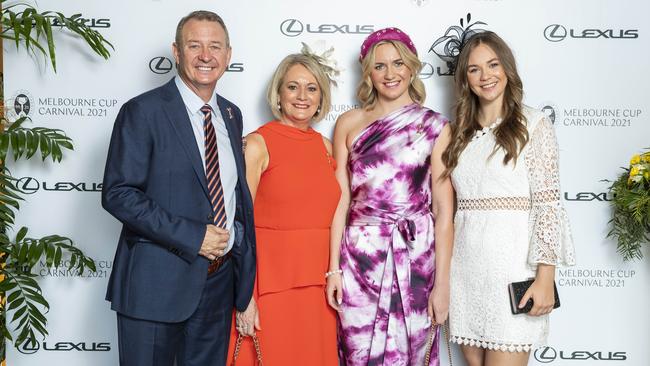
Titmus practises this herself. “I am not a swimmer,” she says firmly. “I swim.”
And win or lose, watching her do just that will be her father Steven, mother Robyn and sister, Mia. Her parents, Titmus says with a laugh, are “best on ground” at big events.
“When they go away, they go hard at the pub during swimming meets, they have fun, they’re just great.”
Swimming fans have been used to the sight of Steve Titmus, a television reporter on the Gold Coast, laughing and crying with delight as his daughter churns through the pool. And with Father’s Day coming up, Titmus says she is lucky to have “the best Dad in the world”.
“He is such a softie, but I love it. He cries all the time with pride, he’s a real girl dad, he’s so proud, and he’s such a character he makes me laugh so much.
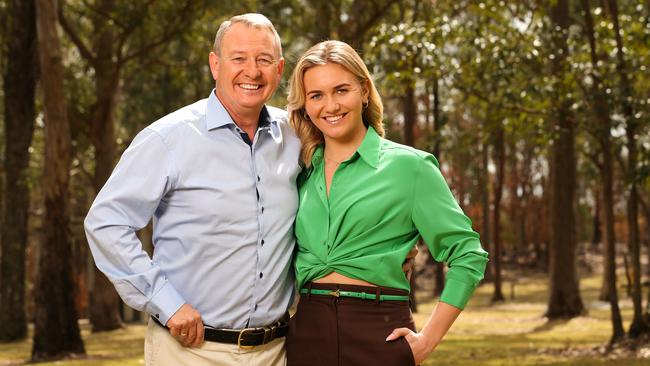
“And he is a daggy dad, he’s the type to say ‘pull my finger’ when we’re walking along.”
She chuckles before adding, “Family is the most important thing in the world to me.”
So says Ariarne, ‘Arnie’, ‘The Terminator’ Titmus. Not a swimmer. Someone who swims.

Add your comment to this story
To join the conversation, please log in. Don't have an account? Register
Join the conversation, you are commenting as Logout
‘Actively investigating’: $1m+ car theft spree
Police are hunting an unknown group after more than $1m worth of luxury cars were stolen during house break-ins across the Gold Coast and Brisbane.
Clever secret behind Taylor Swift’s catchiest pop tunes
A new book reveals the three key elements behind Taylor Swift's rise from teenage songwriter to global phenomenon.